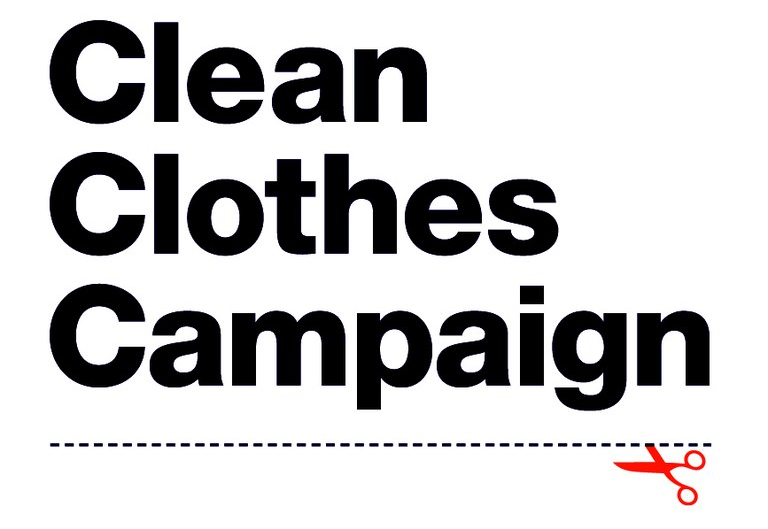Search results
8 results
Sort by:
BLOG - Former workers of Neo Trend remain empty-handed after 14-month-long engagement with Ethical Trading Initiative and member brand Next
Turkish garment factory Neo Trend Textile closed officially on 1 July 2021 due to a loss of orders in the COVID-19 pandemic.
Families affected by 2012 Ali Enterprises fire finally receive life-long pensions
As of yesterday, Saturday 19 May, survivors and families that lost loved ones at the Ali Enterprises fire of 2012 will receive pensions out of a fund financed by the factory’s main buyer, German retailer KiK. The process was lengthy – the families had to wait for more than six years -, but the outcome is ground-breaking. In a global precedent for the garment industry, the families will receive life-long pensions matching international standards as set by the International Labour Organisation (ILO).
Respecting Rights or Ticking Boxes? Briefing paper on legislating human rights due diligence
Momentum to enact mandatory human rights due diligence (HRDD) legislation is building around the world. Such legislation is necessary to ensure corporations respect human rights and that victims of corporate abuse have access to justice and remedy. This briefing paper identifies12 key interpretations of the norms that legislators must get right when establishing HRDD obligations.
Open letter: European Union (EU) Forced Labour Regulation Trilogue
We are writing on behalf of the 33 undersigned civil society organisations and trade unions to outline key issues that should be considered during the upcoming trilogues in order to make the proposed EU Forced Labour Regulation (FLR) a success.
Five years since the Rana Plaza collapse: What has happened in the field of prevention and remedy?
[April 2018] On 24 April 2013, the world watched in astonishment and shame as horror of the Rana Plaza building collapse was broadcast across the world’s media. This was where the race to the bottom had led the garment industry: factories housed in unsafe buildings and workers afraid to enter a workplace with visible cracks in the walls, but even more afraid to lose their wages if they refused. The Rana Plaza collapse was a moment in which all pledged to do better and to start respecting the lives of the women and men working long hours for low pay to make our clothes. Five years on, we take stock. This memo aims to give an overview of the promises made in 2013, and what has – and has not – changed following the world’s worst ever garment factory disaster. It also serves as a guide to the excellent pieces of research that have become available at this moment of retrospection for labour rights in the garment industry.
Rana Plaza Three Years On: Compensation, Justice and Workers' Safety - Summary
Following the collapse of the Rana Plaza building on 24th April 2013 a significant number of campaigns were undertaken to ensure the survivors and the families of the workers killed receive just and fair compensation, and to ensure that future building safety accidents would be prevented. These campaigns contributed to several initiatives including the Rana Plaza Arrangement (set up to provide compensation) and the Bangladesh Fire and Building safety Accord (set up to improve building safety). They also resulted in promises to improve the legal climate regarding Freedom of Association. This summary, published by the Clean Clothes Campaign on the eve of the third anniversary of the tragedy in April 2016, provides an update on the key developments and outcomes in each of these three areas.
Rana Plaza Three Years On: Compensation, Justice and Workers' Safety - Full Report
Following the collapse of the Rana Plaza building on 24th April 2013 a significant number of campaigns were undertaken to ensure the survivors and the families of the workers killed receive just and fair compensation, and to ensure that future building safety accidents would be prevented. These campaigns contributed to several initiatives including the Rana Plaza Arrangement (set up to provide compensation) and the Bangladesh Fire and Building safety Accord (set up to improve building safety). They also resulted in promises to improve the legal climate regarding Freedom of Association. This report, published by the Clean Clothes Campaign and the International Labor Rights Forum on the eve of the third anniversary of the tragedy in April 2016, provides an update on the key developments and outcomes in each of these three areas.
Still Waiting
This report from October 2013 shows how six months after history's deadliest apparel industry disaster, workers continue to fight for compensation. This report by the Clean Clothes Campaign and the International Labor Rights Forum looks in detail at the Rana Plaza and Tazreen Fashion disasters and where the battle for compensation stands six months after the Rana Plaza disaster.
